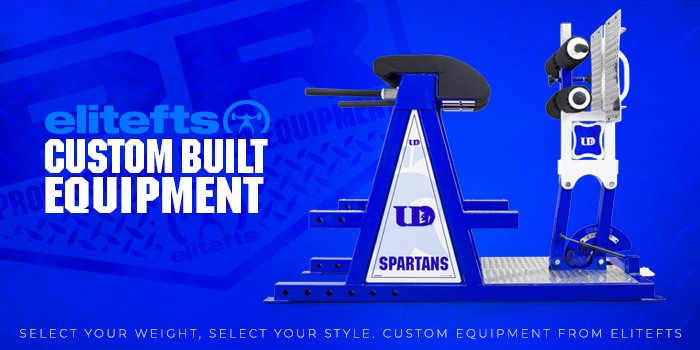
If you’ve read anything that I’ve written, you probably know that I’ve been coaching for more than 20 years. During that time, I’ve been very lucky to have many smart people work for me. I’ve had many interns over the years come through and go on to be more successful in the field than I’ve been. I’ve also seen many good, young coaches leave the profession and have success outside of coaching.
I’m here to tell you that I’m not an expert in the hiring process, but I’ve learned some lessons along the way. I’ll share my basic ideas with you, and I promise that these thoughts won’t be perfect, but they may help you along your path of becoming a better “boss.”
1. Stop hiring from within.
I know this has been done over and over again, but I’ve seen far too many strength coaches promote their graduate assistants to assistants and say they earned it. I’m not telling you that your graduate assistant isn’t a good coach. However, ask yourself if he or she is the best for what you need. There is always someone better. It’s a risk to find an outsider, and you must have confidence in yourself and be willing to take that risk.
RELATED: New Rules for Being a Strength Coach
2. Look at yourself in the mirror, and be honest.
To hire well, you must first know your own habits and issues. I’ve said for years that coaching is easy because all we have to do is show others their issues. We can avoid our own problems and weaknesses and just deflect to others. I don’t think this is good over the long term, and to hire well, we must be critical of ourselves.
Find your own weaknesses, and hire people who fill those voids. I was lucky at my previous university because I hired someone who was the opposite of me in almost every way. She was organized, whereas I was chaotic. She was calm, whereas most times I act like I just took three shots of espresso. When I coach, my voice can be heard miles away. When she coached, it was with a voice that controlled the room without being nearly as loud as mine. This made my job much easier, and it made me a better coach because I saw success from a different angle.

Olivier Le Moal © 123rf.com
3. Know what you’re hiring for.
What teams will this person work with, and what are you going to have him or her do on a daily basis? If you’re hiring someone to be a football assistant strength coach, will he or she be the best person for your hockey team? Cam Davidson taught me this one (way too late in my career). You can’t coach and work with each team in the same way. Know what you want your assistants to do prior to hiring them.
4. Know the difference between a good and a bad reference call.
I’ve received probably a few hundred reference calls over the years, and I have yet to figure out how to politely and legally say that the person in question was terrible. I know how to tell someone that one of my former staff members was a rock star, but I don’t have the words to explain that he or she was terrible. So, make sure that you listen closely. If the person you call doesn’t have glowing references, be cautious.
5. Don’t let pedigree overshadow a good coach.
In college athletics, as in many other realms of life, we see people chase the big name. I remember sitting in meetings about hiring a new head coach once and one of the administrators said, “But that person coaches at School X.”
Basically, the administrator was judging a coach for coaching at a lesser-known school. I’ve met some great coaches who coach at small, lesser-known schools. I’ve also met terrible coaches who coach at “Big time U.”
6. Show your work.
I’ve always been very good at math. I can do most basic math problems faster than others can. I have a few theories as to why this is, but for whatever reason, if you need math done quickly, call me.
The problem is that I can never show my work. When you’re interviewing someone, let him or her justify what he or she says. I was in an interview once where a coach said, “You haven’t worked with enough high-level athletes.” The issue is that I wasn’t given the opportunity to show my work. Why do I do what I do, and how would it have aided her team? Because I wasn’t given the chance, I couldn’t show what I could’ve done. This is clearly akin to #5, and none of these points can be held separately from the others.
7. Don’t judge a book by its cover.
This one is simple. Although all coaches should train, not every coach will look like Arnold. I will stand by the statement that all coaches should compete in something. Not all coaches want to be Nate Harvey (only I do). I know Matt Rhodes has some good rules about entering Rhodetown, but some people don’t have the desire to eat themselves to 250 pounds. One of the smartest coaches I know is at a Division III school and weighs around 175 pounds.
These are some general guidelines, and I promise you that there isn’t any perfect way to interview or hire. I’ve been lucky enough to make some great hires, and I know I’ve failed as many times as I’ve had success.
I’ll end this article by saying that one rule I’ll stand by is this: If they don’t squat, don’t hire them.











2 Comments